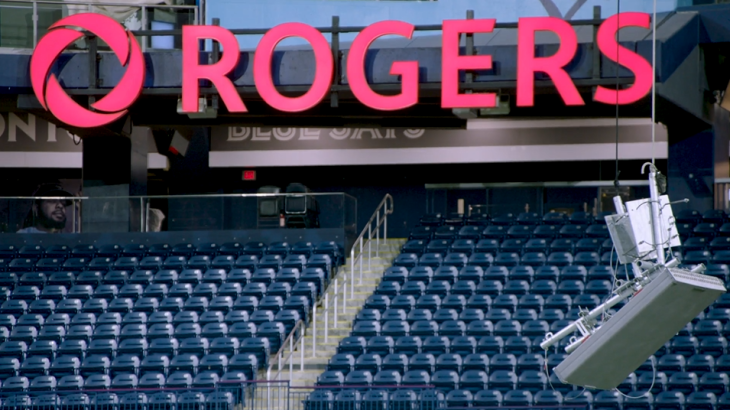
By Ahmad Hathout
Rogers is seeking to purchase the rest of Maple Leaf Sports and Entertainment (MLSE) before it entertains outside investors.
The telecom’s chief financial officer, Glenn Brandt, said at a CIBC conference Thursday that Rogers has a call option to buy the remaining 25 per cent stake in the sports empire from Larry Tanenbaum’s Kilmer Sports, which has a put option to sell. Both options are due July 2026.
Brandt said while Rogers hopes to negotiate something sooner for that stake, he expects the option to be exercised anyway and, around this time next year, Rogers will close on taking the rest of an MLSE it values at over $15 billion.
“Once we take out that 25 per cent stake, then the intent will be either at that time or very closely thereafter to bring in minority investors – very substantial institutional investors, it could be private individuals as well,” Brandt said, adding the intent is to ease up on its capital deployment.
“We have options wide open to us,” he added. “Whether we keep it private, take it public, spin it out … We haven’t determined all of those decisions just yet.”
The position is a change from the cable giant’s original posture that it would field institutional investor interest after it closed its purchase of Bell’s 37.5 per cent stake, which was finalized in June and made Rogers a 75-per-cent equity holder in the organization that owns the Toronto Maple Leafs, Toronto Raptors, Toronto Argonauts, and Toronto Football Club.
“What’s changed over the last three or four months is we have time now to take out the minority before bringing in the outside investors,” Brandt said, adding Rogers has been in discussions with potential investors “for several months now” but “slowed those down some.
“What I have found is as soon as we start talking, the excitement level builds and I don’t know if we’re weeks or months away from taking out the minority partner and there’s no sense in wasting their time and energy on spinning things up until we have a sense of that timing.”
Owning the entire sports empire would mean both cost savings and revenue generation, Brandt said. The savings would come from the fact that it could roll executive offices into one managed from Rogers’s head office to oversee all holdings, instead of having office infrastructure for each of the teams under the MLSE banner.
For revenue opportunities, the buy will mean it will own “significant” live entertainment venues across greater Toronto, which could yield concert revenue and sponsorship opportunities, Brandt said.
Brant said the annual growth rate for sports assets is in the range of 15 per cent, with Rogers valuing the combination of MLSE and Rogers Sports and Media at around $20 billion today.
“Depending upon the timing of when these transactions happen, every year those values go up by a substantial amount,” Brandt said. “The opportunity for us is very large.”
Rogers CEO Tony Staffieri said in April that, “The multi-billion-dollar value of our world class sports assets is not reflected in our share price and our priority is to change this,” noting that the company went out and secured the rights to broadcast NHL games through to the 2037/38 season for $11 billion – what he called the most valuable media rights in the country.
“The first deal was profitable and successful for Rogers and Sportsnet,” Staffieri said of the previous 12-year deal signed in 2013.
“Our sports assets are unrivaled in Canada and our sports portfolio is one of the best in the world,” Staffieri added. “Sports assets continue to appreciate significantly in value and that’s why investors remain very interested in holding a minority position in these appreciating assets. We continue to meet with external investors who recognize the opportunity with our sports portfolio.”


